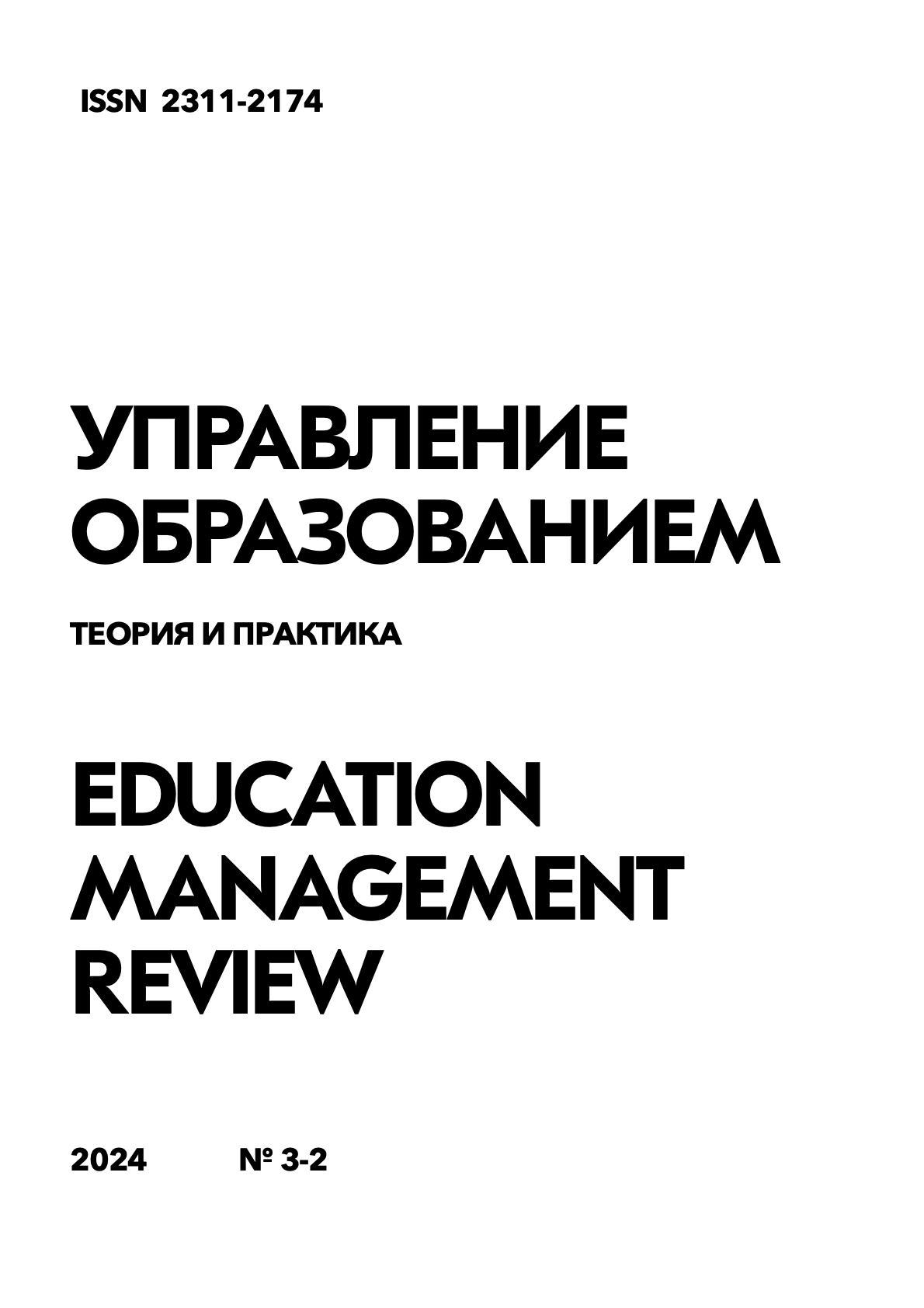Level differentiation of education by means of the discipline «IT Project Management» in a higher technical educational institution
DOI:
https://doi.org/10.25726/v3673-1909-1693-vKeywords:
level differentiation of learning, IT project management, technical education, individualization of learning, pedagogical experiment, adaptive learningAbstract
This article discusses the issue of level differentiation of education within the framework of teaching the discipline «IT Project Management» at a technical university. The relevance of the topic is due to the need to adapt the educational process to the individual characteristics and needs of students in order to increase the effectiveness of learning. The purpose of the study is to develop methodological foundations and practical recommendations for the implementation of level differentiation in the teaching of this discipline. The research materials and methods include the analysis of existing theoretical approaches to differentiated learning, the study of advanced pedagogical experience, as well as conducting a pedagogical experiment in real conditions of a technical university. The experiment was attended by 120 students of 3-4 courses studying in the fields of «Information Systems and Technologies» and «Software Engineering». Experimental and control groups of 60 people each were formed. The experimental group used the method of level differentiation developed by the author, while the control group was taught using traditional methods. Testing, questionnaires, and analysis of students' project activities were used to evaluate the results. The results of the experiment showed that the use of level differentiation makes it possible to improve the quality of learning and motivation of students. In the experimental group, the average score according to the results of the final test was 4.35 on a five-point scale compared to 3.92 in the control group. 78% of the students in the experimental group noted an increase in interest in the discipline and satisfaction with the learning process. The quality of project execution in the experimental group was on average 23% higher compared to the control group according to criteria such as completeness of requirements implementation, optimality of architectural solutions, and efficiency of using project management tools. The results obtained confirm the expediency of introducing level differentiation into the practice of teaching the discipline «IT Project Management» in technical universities.
References
Выготский Л.С. Педагогическая психология. М.: Педагогика, 1991. 480 с.
Гальперин П.Я. Методы обучения и умственного развития ребенка. М.: Изд-во МГУ, 1985. 45 с.
Готальская О.В. Особенности структурирования курсового проекта по дисциплине «Основы конструирования приборов» // Международный журнал гуманитарных и естественных наук. 2021. № 7(58). С. 30-35.
Загвязинский В.И. Теория обучения: Современная интерпретация. М.: Академия, 2001. 192 с.
Зимняя И.А. Педагогическая психология. М.: Логос, 2004. 384 с.
Лернер И.Я. Дидактические основы методов обучения. М.: Педагогика, 1981. 186 с.
Маслоу А. Мотивация и личность. СПб.: Питер, 2008. 352 с.
Машбиц Е.И. Психолого-педагогические проблемы компьютеризации обучения. М.: Педагогика, 1988. 192 с.
Минина В.Н. Цифровизация высшего образования и ее социальные результаты // Вестник Санкт-Петербургского университета. Социология. 2020. № 1. Ч. 13. С. 84-101.
Подласый И.П. Педагогика: 100 вопросов - 100 ответов. М.: ВЛАДОС, 2004. 365 с.
Полат Е.С. Современные педагогические и информационные технологии в системе образования. М.: Академия, 2007. 365 с.
Попова В.Б. Проблемные аспекты перехода на актуализированные федеральные государственные образовательные стандарты высшего образования по экономическим направлениям подготовки // Наука и Образование. 2020. Т. 3. № 4.
Попова В.Б., Кирилова С.С., Лосева А.С. Исторические аспекты и современные условия развития высшего экономического образования // Наука и Образование. 2022. Т. 5. № 1. С. 157.
Попова В.Б. Состояние методической работы в структурных подразделениях университета как индикатор качества образовательного процесса и фактор применения инновационных технологий обучения // Инновационные технологии обучения в вузах. Секция «Инновационные технологии обучения в сфере естественно-научных и технических специальностей в вузах»: сб. ст. Национ. науч-прак. конф. (27-28 апреля 2022 г., Сочи). Под общ. ред. А.В. Архипенко. Сочи: Образовательное частное учреждение высшего образования «Международный инновационный университет», Образовательное частное учреждение высшего образования «Московский инновационный университет», 2022. С. 80-84.
Щербаков Н.В. Онлайн-курсы как инновационная форма обучения в высшей школе // Наука и Образование. 2020. Т. 3. № 4.




